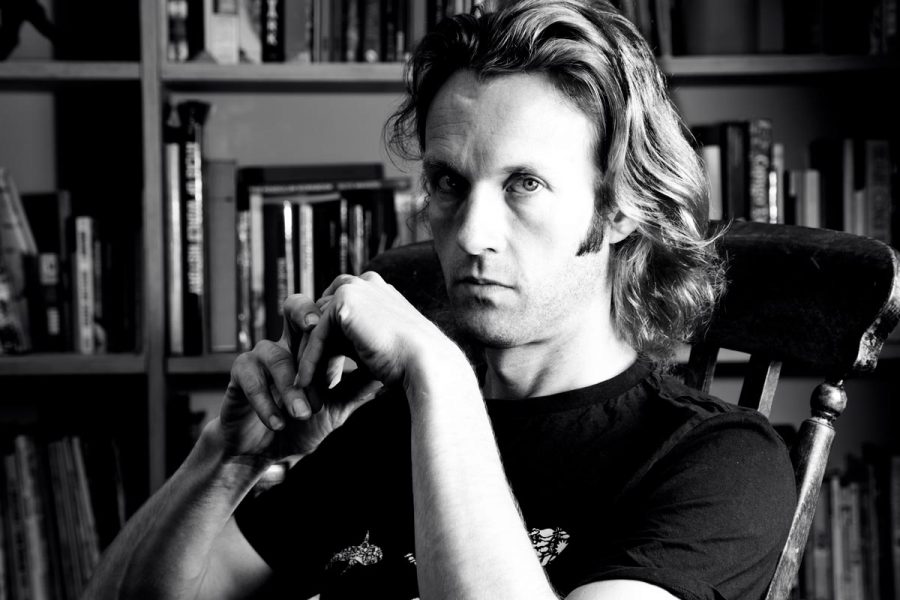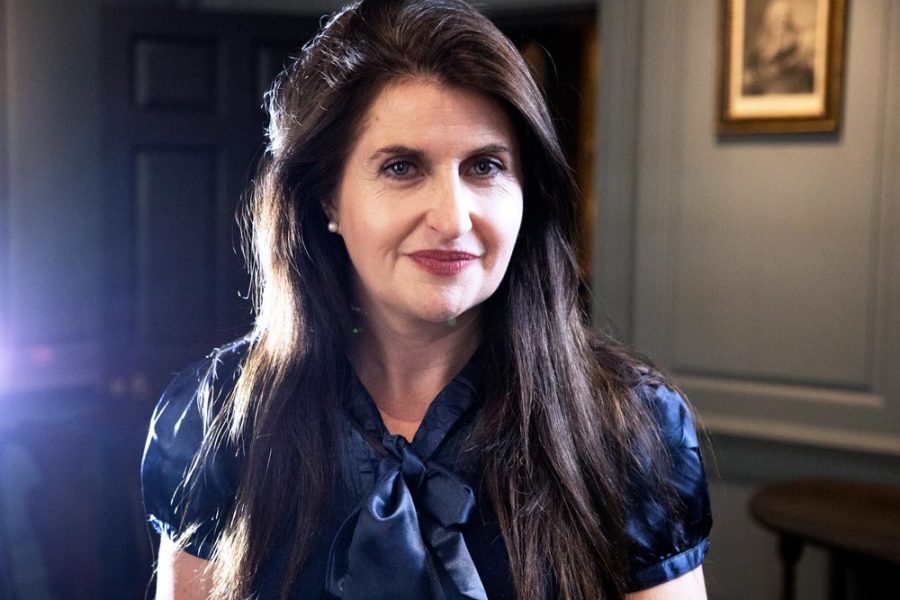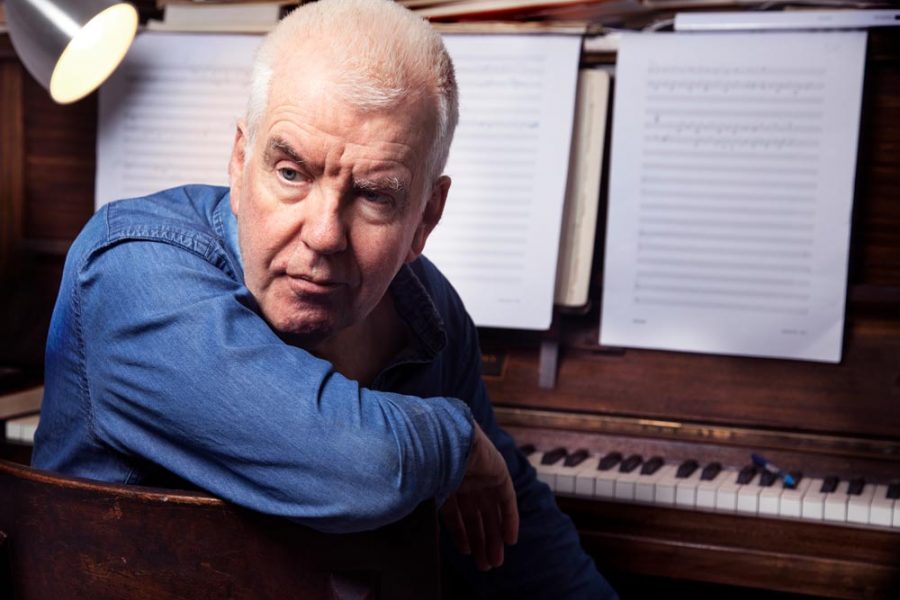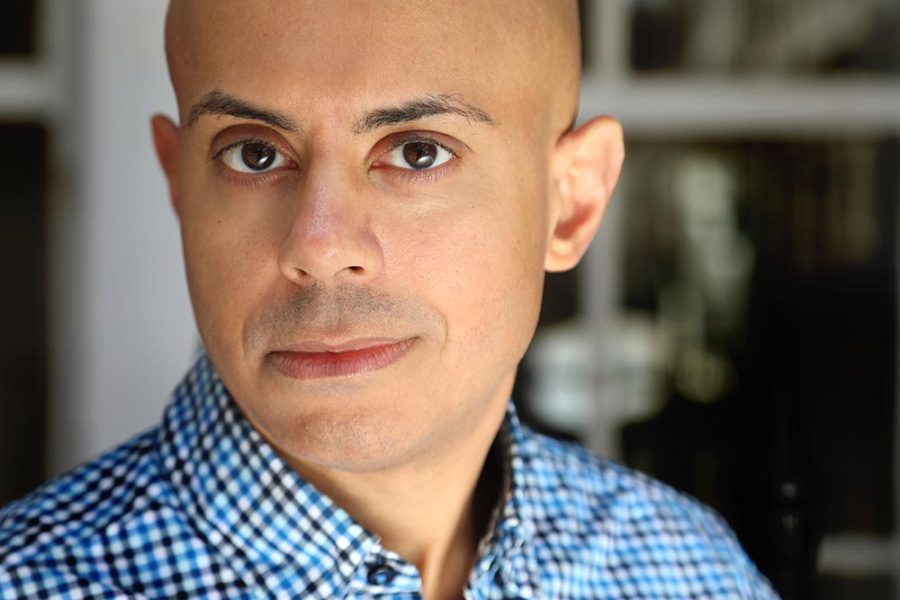The Complexities of Composing: Damian Gallagher

October 2015
Words by
Emer Nestor
Photos by
Frances Marshall
Irish composer and conductor Damian Gallagher is currently making waves on the contemporary music scene ahead of the world première of his suite Alanú this October at the National Concert Hall, Dublin. Final Note chats with Gallagher about his career as a performer, the move to composition, his association with ‘The Friends of Hope Choir’, and his latest works.
...I was conducting a lot of concerts and choirs and so started writing new music for these concerts. It was such a thrill to hear my compositions come to life."

Many classically trained musicians end up working as performers within the wedding industry, but this can often be seen as a detrimental move in terms of a performing career — what are your thoughts on this?
This depends on how the performer wants to be viewed. I performed at weddings for years and it was a good way of earning extra money. I did this while I was at college and a lot of the time it was fun, but I always take any music job I have seriously. I am a firm believer in delivering the best of yourself when someone puts their trust in you and is willing to pay for your services. If weddings (or funerals) are all that you do then, yes, you can be typecast and become known as a ‘wedding singer’. That’s ok unless you want to be known for something that you have a bigger passion for. I guess you have to be careful in this regard sometimes.
Having studied performance at DIT and established your name as a singer and flautist, what motivated the change in trajectory towards composition?
I have had a very varied journey in music right from the beginning. I started my musical career at 4 years of age playing guitar for the local church choir — I picked it up so quickly and my mother knew immediately that I had a flare for music. I then went on to study classical guitar and did a few exams with Trinity College, London. However, at the age of 12 I gave up the guitar and music training because I hated practicing scales. A few years later I was involved in a drama group and we put on a production using the music from The Missionas the underscore to the drama. This was a turning point in my musical journey. I completely fell in love with the music of Ennio Morricone…I was obsessed. So I went home and asked my mother if I could take up piano.
I remember saying to the piano teacher in my first lesson: “I don’t want to learn how to play the piano, I just want to be able to play the music from The Mission on the piano”. So the piano teacher wrote simplified versions of all the music and within weeks I could play the music from the film — I was lucky enough to be able tell this story to Ennio Morricone while working on his concert in Kilmainham in Dublin.
A few years later I took up flute and progressed rapidly through all the grades. I then decided to do flute performance in college in DIT. While at college I started getting a bit of work directing for musicals. I always knew the sound I wanted from the singers but couldn’t tell them how to produce this, as I knew very little about singing. So following advice from RTÉ Lyric fm presenter Liz Nolan (who is compére for my forthcoming debút show in the National Concert Hall), I took up singing lessons and sat all my grades, in tangent with all my exams in percussion up to diploma level for the same reason.
I have always enjoyed performing but some years ago I started experimenting with composition. I kind of just fell into it. I wrote a series of flute studies and the great Irish flautist William Dowdall had a look at them and put them on the syllabus for the Royal Irish Academy of Music. I then published under the title Trifecta. Having received critical acclaim in the USA, the publication earned the prizewinner award at the ‘NFA Newly Published Music Competition’ (USA), and was added to the National Flute Library of America. This encouraged me to keep going and so I published a second book entitled All That I Could for Flute, Cello and Piano. This too received an award in America. By this time I was conducting a lot of concerts and choirs and so started writing new music for these concerts. It was such a thrill to hear my compositions come to life.
How have you found the career move so far?
I really love composing at the moment and I think I am getting better at it. Composing is a complex process: not only do you have to come up with something original, but also something that is interesting to the listener. You also need to spend a lot of time working with different musicians, learning about how the instruments work and how to write for that instrument. I am very lucky in this regard, as I have a lot of really good musician friends who constantly advise me on how best to write for their instrument. This is the most crucial part of composition in my eyes.
I love nothing more than to sit with a musician and throw around ideas and possibilities and come up with the solution I am looking for. In that way, I sometimes view some of my compositions as a team effort. I also do a lot of arranging and orchestrating and I find this process creative too. I don’t make a complete living from composition and arranging so I wouldn’t say that my ‘career move’ (if that’s what it is) is complete. I don’t know whether I would just like to compose either. I think I am more passionate about conducting than composition. I guess the ultimate scenario is conducting your own compositions.
I absolutely love to conduct — for me it is the ultimate performance. The conductor David Charles Abell, who I was lucky enough to meet last year in London, is a huge influence. He is such a wonderful conductor and a true gent. He is one of the good ones. I was star struck when I met him, but he quickly made me feel comfortable and gave me a lot of advice. I put a lot of my success this year down to his positive and supportive advice. He didn’t really do much other than give me the little boost I needed. This gave me the confidence to make certain leaps that have led to some really exciting stuff.

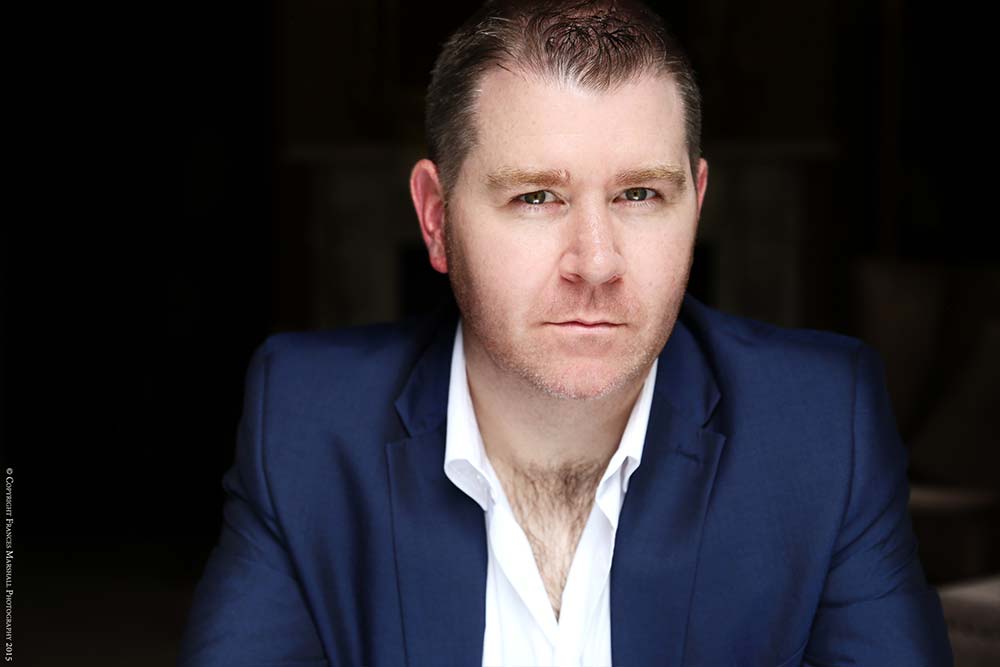


...my real love lies with telling a story through music. I think this is why I would love to write an opera, musical, or write for film someday."

From where do you derive inspiration?
I have so many influences…it’s hard to know where to start. There’s the usual suspects like Bach, Mozart, and Beethoven, but I also love the music of Puccini, Bellini, Poulenc, Prokofiev etc…. Film soundtracks and musicals also inspire me. I am always impressed with the scores of John Williams. His writing is always very idiomatic of the instrument he is writing for. He also writes great melodies and knows how to use the orchestra to create very interesting new colors and tone palettes. I also admire the works of Hans Zimmer, James Horner, Ennio Morricone, Alan Silvestri, Stephen Schwartz, Alan Menken, Claude-Michel Schoenberg, William David Brohn (Orchestrator), Bill Whelan and countless others. I suppose I am also influenced by my ‘Irishness’.
What is your compositional process?
It really depends on whether I am writing for a specific deadline or purpose. Sometimes this helps and I can be lucky and put something really nice on the page relatively quickly. Other times it can be like banging your head off the wall and just nothing comes (at least not anything you would let anyone listen to). Other times I have no deadline and compose with ease…I think this is when I have come up with my best stuff.
I am not a morbid person but I always find it easier to write about people who have passed away. I guess I just feel more when I think of giving a voice or musical story to a now-silent voice. Most of my music is programme music and tells a specific story. I love writing in this genre and even though I have written some absolute music, my real love lies with telling a story through music. I think this is why I would love to write an opera, musical, or write for film someday.
Have you any further publications planned?
Nothing set in stone at the moment. I have a lot of pieces that I would like to get published but I am hoping to do this through a publishing house. If that happens, I will hopefully get some more of my music ‘out there’.
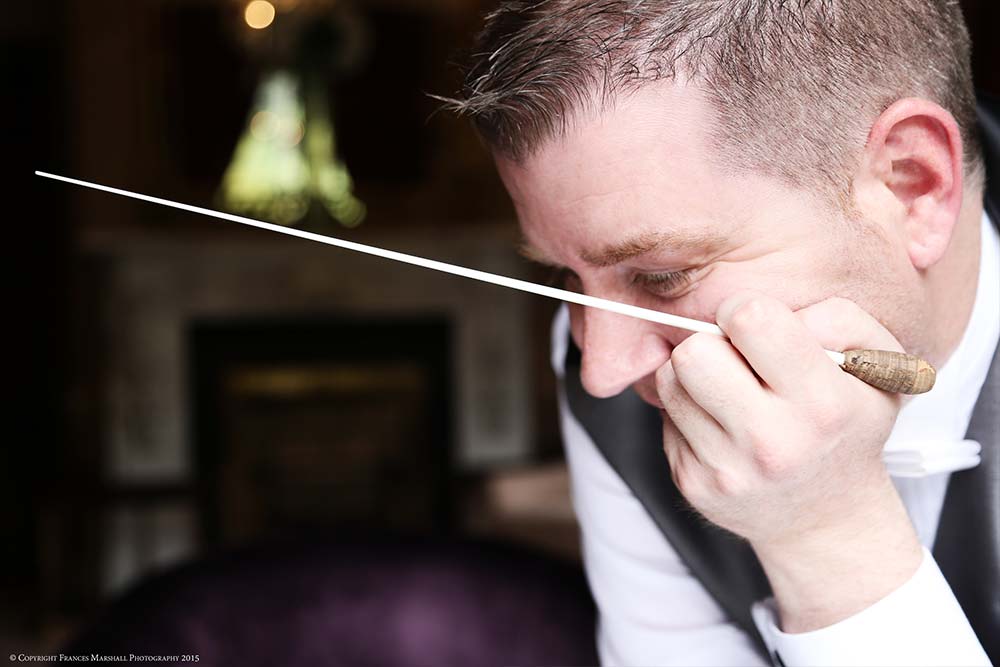


Where does your music sit within the current contemporary Irish music scene?
I don’t know really…I don’t think about things like ‘where do I fit in?’, or how I compare with other composers and their music. My wish is to hear that people are touched by my music and what I have to say. If my music makes people cry then I am very happy…just kidding! I also like when it cheers people up! I also secretly hope that it is respected among fellow musicians and colleagues — I suppose that’s the real test.
In today’s artistic climate, is the process of getting your music heard particularly difficult?
I find this the hardest part. I literally have hundreds of compositions completed and it’s so hard to create forums to have your work performed. I guess I have been lucky in the last few years because a lot of my work has been performed…but not nearly as much as I would have liked. I received an email from New York last year to inform me that an American duo were performing one of my works in upstate New York and then in Italy — the feeling was like winning the lotto! It’s just such a buzz!
What is the story behind ‘The Friends of Hope Choir’ (Community Care Foundation), and how did you get involved with the ensemble?
Community Care Foundation (C.C.F) is a registered charity founded by two work colleagues from Massey Brothers Funeral Directors — Paul English and Rodney O’Connor. The main aim of C.C.F is to raise funds to help families who are experiencing financial difficulty in these tough economic times. Rather than ask people to just donate to a charity, Rodney and Paul decided to raise money by holding concerts. They contacted me to ask me to orchestrate and direct their concerts. The C.C.F. Friends of Hope Choir has grown since its inception in 2010. It now consists of fifty members, including children and soloists. We have been performing all over Dublin and have raised thousands of euros to help hundreds of needy families.
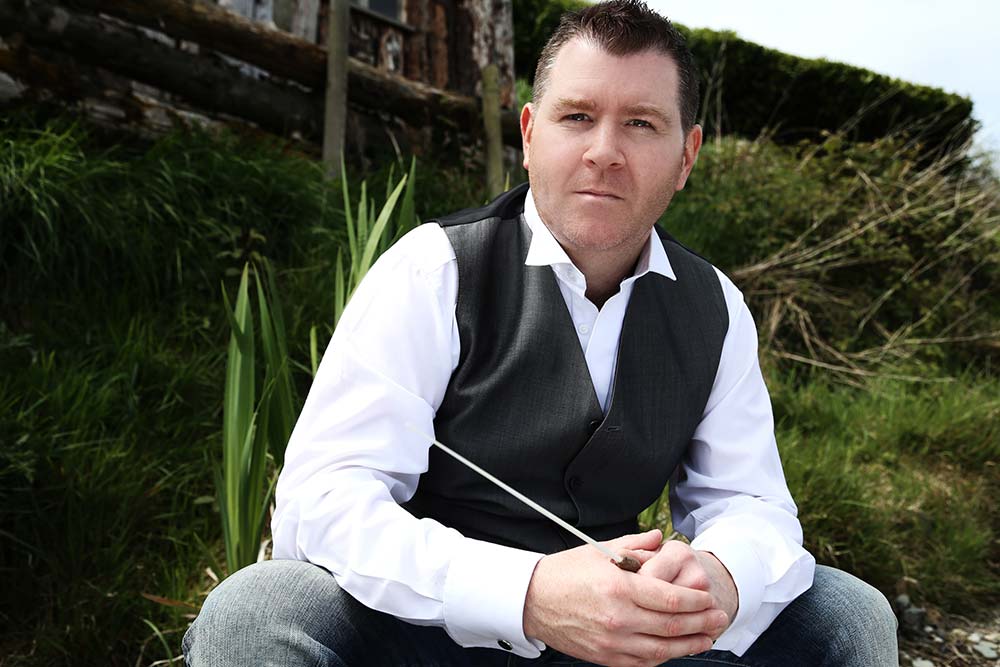

The world première of your latest composition Alanú is scheduled for 6 October at the National Concert Hall. Tell us about the suite and the three women behind the musical tale.
Alanú is a three-movement suite written for orchestra, choir, solo soprano, and traditional Irish musicians. It takes its name from a phonetic version of the Irish word ‘leanbh’ (meaning ‘child’). ‘Alanú’ is a special term of endearment, widely used in Donegal, and evokes the nature and spirit of three significant women from my life’s journey so far: 1) Bella Doogan — my maternal grandmother; 2) Sarah Doogan — Bella’s sister-in-law; and 3) Bridget O’Donnell — Bella’s sister.
The work has taken me four years to complete. I think it sounds a bit like a soundtrack for a film that hasn’t been made yet. It has strong Irish influences and idioms, with new compositional techniques. To my knowledge I don’t know of any reels that include a chorale for choir, so hopefully the audience will find this interesting. I have also used a lot of extended techniques on the various instruments. The strings are tapping their bows, the brass are tapping their bells with fingernails, and the percussion perform sounds created specifically for this composition. There are gongs and cymbals being bowed with violin bows and a lot of other exciting things for the players to get their teeth into. Ultimately the work is full of haunting Irish melodies and lively jigs and reels.
Getting an album of your music out there can be an arduous journey — how have you found the experience?
It has been a lot of hard work…fun…fulfilling…and an education. The real joy was getting to work with amazing musicians and professionals within the recording industry. They were all so giving and generous in trying to help me realize this little dream.
What’s next on the horizon?
I always have something in the pipeline — projects that I want to get off the ground. I do have some thrilling plans to write some bigger works soon, and there are some really exciting projects in the works for 2016!
Is there a dream Damian?
There is always a dream. I think without that I would stop. You always hope that this journey is leading to somewhere bigger and better. For now I am enjoying the process, but I would love to write for film, and possibly write an opera and a musical….
Damian’s forthcoming sold-out première at the NCH will feature the musical talents of singers Fidelma Kelly, Sharon Lyons and Niamh Breslin. Alongside the Dublin Concert Orchestra and Friends of Hope Choir, instrumentalists will include Lynda O’Connor (Fiddle), Pat Fitzpatrick (Whistles/Irish Flute), James Mahon (Uileann Pipes), Clare McCague (Irish Harp), and Robbie Walsh (Bodhràn).
All images displayed in this article are subject to copyright.
Share this article


